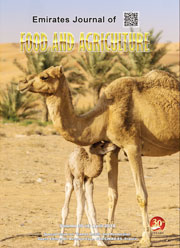ADDITION OF MULBERRY LEAF (MORUS ALBA L.) TO A DIET FORMULA IMPEDED ITS HYPOGLYCEMIC EFFECT AND EXACERBATED DYSLIPIDEMIA IN HIGH-FRUCTOSE- AND HIGH-FAT-INDUCED CD-1 MICE
DOI:
https://doi.org/10.9755/ejfa.2017-05-1067Keywords:
dyslipidemia, glucose regulation, insulin resistance, mulberry leafAbstract
Backgrounds: Morus alba L. (mulberry leaf) is frequently used for therapeutic purposes in China. This study investigated the hypoglycemic and hypolipidemic effects of a reported antidiabetic herbal formula (PLCP) supplemented with mulberry leaves (MPLCP) in high-fructose- and high-fat- (HFF) fed mice. Methods: Six-week-old CD-1 male mice were fed on normal standard diet for 10 weeks. Fat emulsion with or without aqueous/ethanol extracts of PLCP/MPLCP was administrated by gavage daily for HFF groups. The normal group only received vehicle. 15% Fructose drinking water was supplied for HFF groups. Results: MPLCP was less effective than PLCP in hypoglycemic effect. The addition of mulberry leaves impeded not only the decrease in insulin resistance and serum free fatty acid content but also the increase in spleen index. The ethanol extract of MPLCP caused remarkable increase in low-density lipoprotein levels (p < 0.01) and significant increase in total cholesterol level (p < 0.05) compared with model group. Thus the effect of MPLCP was detrimental to abnormal serum lipid levels. Conclusion: The addition of mulberry leaves to PLCP weakened the hypoglycemic effects of the original formula and exacerbated dyslipidemia.










 .
. 